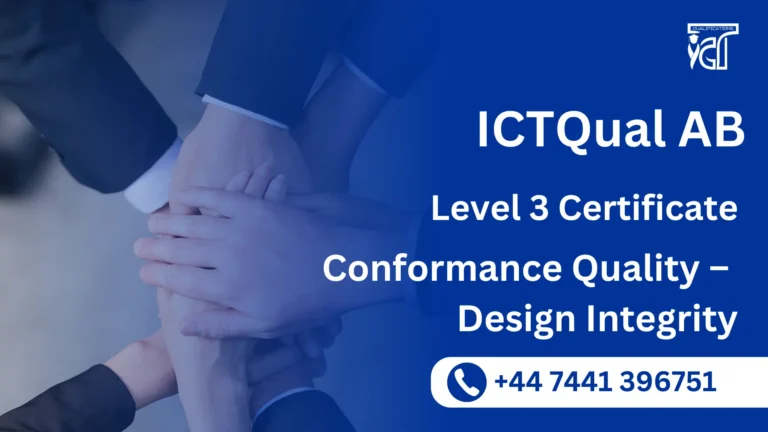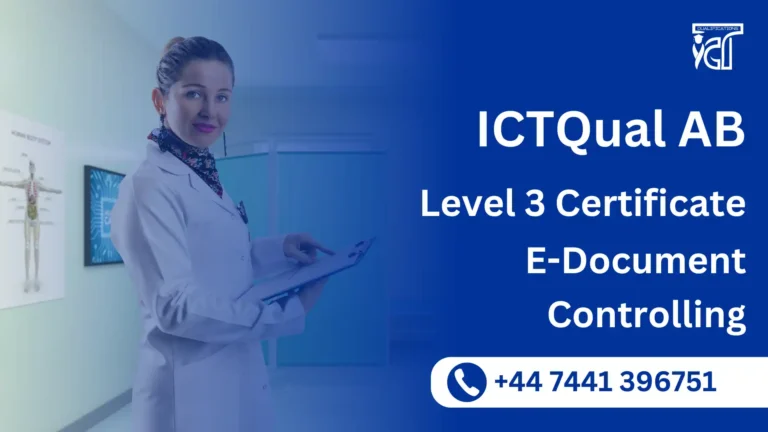The QualCert Level 3 Certificate in Green Building Energy efficiency provides a comprehensive understanding of energy-efficient building design, construction, and operation. This QualCert Level 3 Certificate in Green Building Energy efficiency equips learners with the knowledge and skills to minimize energy consumption, optimize building performance, and integrate renewable energy solutions. As the demand for sustainable buildings grows, professionals must be equipped with the expertise to design and implement energy-efficient systems. This QualCert Level 3 Certificate in Green Building Energy efficiency covers essential topics such as passive design strategies, high-performance building materials, and smart energy management techniques to reduce carbon footprints and operational costs.
Learners will develop the ability to assess energy efficiency measures, implement best practices, and contribute to a more sustainable built environment. The QualCert Level 3 Certificate in Green Building Energy efficiency is designed for professionals in architecture, engineering, construction, and sustainability consulting who seek to enhance their expertise in energy-efficient building practices. The QualCert Level 3 Certificate in Green Building Energy efficiency explores innovative design approaches and technologies that improve building performance while reducing environmental impact.
Energy efficiency is crucial for reducing a building’s carbon footprint, lowering operational costs, and improving overall environmental performance. From designing buildings that consume less energy to implementing advanced systems such as solar panels, smart heating, and energy-efficient lighting, this QualCert Level 3 Certificate in Green Building Energy Efficiency covers it all. By learning how to reduce energy consumption without compromising comfort or performance, you’ll be able to contribute to the growing demand for sustainable and eco-friendly construction practices.
As the construction industry continues to evolve, energy efficiency has become a cornerstone of sustainable building design. The QualCert Level 3 Certificate in Green Building Energy Efficiency is an essential qualification for anyone looking to enhance their understanding of energy-efficient technologies, systems, and strategies in the built environment. Whether you’re involved in design, construction, or facilities management, this course equips you with the skills to make buildings smarter, more sustainable, and cost-efficient.
The QualCert Level 3 Certificate in Green Building Energy Efficiency is an essential qualification for anyone involved in the construction, design, or management of energy-efficient buildings. By mastering the strategies and technologies that reduce energy consumption, learners can play a vital role in creating more sustainable, cost-effective, and environmentally friendly buildings.
QualCert Level 3 Certificate in Green Building Energy Efficiency
The QualCert Level 3 Certificate in Green Building Energy efficiency offers 20 Credits, requiring a Total Qualification Time (TQT) of 100 hours, including 70 Guided Learning Hours (GLH).
Mandatory units
|
Sr# |
Unit Title |
|---|---|
|
1 |
Fundamentals of Energy Efficiency |
|
2 |
Building Energy Performance and Modeling |
|
3 |
Renewable Energy Integration in Buildings |
|
4 |
Smart Building Technologies and Automation |
|
5 |
Compliance with Global Energy Standards |
GLH (Guided Learning Hours) and TQT (Total Qualification Time) are terms commonly used in vocational qualifications to help define the amount of time a learner is expected to spend on heir studies.
1. GLH (Guided Learning Hours)
GLH refers to the number of hours a learner spends being directly taught, supervised, or supported during their course. This includes the time spent in activities such as:
- Classroom instruction
- Practical workshops
- One-on-one tutoring or mentoring sessions
- Online learning sessions with tutor support
In other words, GLH represents the time that learners are actively engaged with their instructors or learning activities.
2. TQT (Total Qualification Time)
TQT represents the total amount of time a learner is expected to invest in completing a qualification, including:
- GLH (Guided Learning Hours): Time spent on direct learning, as explained above.
- Self-Directed Learning: This includes time spent on independent study, research, assignment completion, preparation for exams, and any other work the learner does outside of direct teaching hours.
TQT is a broader measure that includes all the time required to achieve the qualification. It helps learners and employers understand the overall commitment required for the qualification.
Key Differences Between GLH and TQT:
- GLH focuses on direct learning with guidance or supervision.
- TQT includes GLH as well as independent study time and other learning-related activities.
Example:
If a qualification has a TQT of 600 hours and a GLH of 250 hours, it means the learner should spend 250 hours in direct learning (classroom, online, or tutor-led sessions) and 350 hours on independent study or research.
Learning Outcomes of QualCert Level 3 Certificate in Green Building Energy Efficiency:
By the end of the course, learners will be able to:
- Understand energy efficiency principles in building design and construction, including the environmental and financial benefits.
- Evaluate and select energy-efficient technologies for heating, cooling, lighting, and renewable energy systems.
- Analyze building performance using energy audits and tools to identify opportunities for energy consumption reduction.
- Implement energy-saving strategies in residential, commercial, and industrial buildings to reduce energy demand and enhance building performance.
- Stay compliant with energy regulations and green building standards, including energy codes, certifications, and sustainability guidelines.
- Integrate energy-efficient solutions into sustainable building designs, improving energy conservation throughout a building’s lifecycle.
- Manage energy use effectively in building operations, promoting cost-effective energy consumption without compromising comfort or functionality.
These learning outcomes ensure that learners can apply their knowledge to create energy-efficient, sustainable buildings that benefit both the environment and the bottom line.
Here are the course benefits for the QualCert Level 3 Certificate in Green Building Energy Efficiency:
- Career Advancement: Gain a recognized qualification that enhances your career prospects in the growing green building and sustainability sector.
- Practical Skills: Learn how to implement energy-efficient technologies and strategies that reduce energy consumption and operational costs.
- Cost Savings: Understand how to manage energy use effectively, leading to long-term savings for clients and building owners.
- Environmental Impact: Contribute to reducing a building’s carbon footprint and supporting global sustainability efforts through energy-efficient practices.
- Industry Relevance: Stay up to date with the latest energy efficiency standards, regulations, and certifications, ensuring your projects meet green building requirements.
- Competitive Edge: Stand out in the job market as energy efficiency becomes a key consideration for businesses and governments worldwide.
- Practical Application: With real-world case studies and project work, apply your knowledge directly to construction, design, or energy management projects.
- This course equips you with the expertise to create energy-efficient buildings that are both environmentally sustainable and cost-effective.
This QualCert Level 3 Certificate in Green Building Energy Efficiency is ideal for:
- Construction Professionals: Site managers, contractors, and engineers looking to incorporate energy-efficient systems in construction projects.
- Architects and Designers: Professionals involved in the planning and design of buildings who want to integrate energy-saving solutions into their designs.
- Facilities Managers: Individuals responsible for managing and optimizing energy usage in existing buildings and facilities.
- Sustainability Consultants: Professionals advising clients on energy conservation, green building certifications, and energy-efficient strategies.
- Project Managers: Those overseeing building projects and wanting to ensure that energy efficiency is a core consideration throughout the development process.
- Environmental Enthusiasts and Career Changers: Individuals passionate about energy conservation who wish to enter the green building industry or transition into sustainability roles.
- Policy and Compliance Officers: Professionals ensuring buildings comply with energy regulations and green building standards.
Anyone looking to enhance their knowledge and contribute to the growing demand for energy-efficient, sustainable buildings would benefit from this qualification.
Entry Requirements
To enrol in the QualCert Level 3 Certificate in Green Building Energy Efficiency, applicants must meet the following criteria:
- Educational Background: A basic secondary school education (high school diploma or equivalent) is recommended.
- Industry Experience: While not mandatory, prior experience in construction, facilities management, sustainability, or engineering is beneficial.
- English Proficiency: Proficiency in English is required, as all course materials and assessments are delivered in English.
- Basic Literacy and Numeracy: Competency in basic reading, writing, and math skills for engaging with course content and completing assessments.
- Interest in Sustainability: A genuine interest in energy efficiency, sustainability, and green building practices is essential for success in the course.
These entry requirements ensure that learners have the foundational knowledge and skills to succeed in the course and apply their learning effectively in the field.
Register Now
Qualification Process
Qualification Process for QualCert Level 3 Certificate in Green Building Energy Efficiency
- Enrolment – Register with an accredited training provider and gain access to course materials, resources, and support.
- Course Study – Complete approximately 12 weeks of structured learning, combining theory with practical application on energy-efficient building systems.
- Assessment – Submit assignments, case studies, and project work that demonstrate your understanding and application of energy efficiency strategies.
- Internal Verification – All assessments are internally verified by the training provider to ensure quality and consistency.
- Certification – Upon successful completion of the course and assessments, receive the QualCert Level 3 Certificate in Green Building Energy Efficiency.
- Progression Opportunities – Use the qualification to advance your career, pursue further education in sustainable building practices, or apply the knowledge to your professional projects.
Assessment Methods:
- Written Assignments – Complete written tasks that assess your understanding of energy-efficient systems, technologies, and strategies for reducing energy consumption in buildings.
- Case Studies – Analyze real-world examples of building projects, applying energy efficiency principles to identify areas for improvement and propose solutions.
- Project Work – Develop practical energy-saving plans for residential, commercial, or industrial buildings, showcasing your ability to implement energy-efficient strategies.
- Knowledge Quizzes – Take quizzes to test your understanding of key concepts, terminology, and regulatory standards related to energy efficiency in buildings.
- Reflective Reports – Write reports reflecting on how course content applies to your current or future professional role, demonstrating critical thinking and the ability to integrate knowledge into real-world scenarios.







